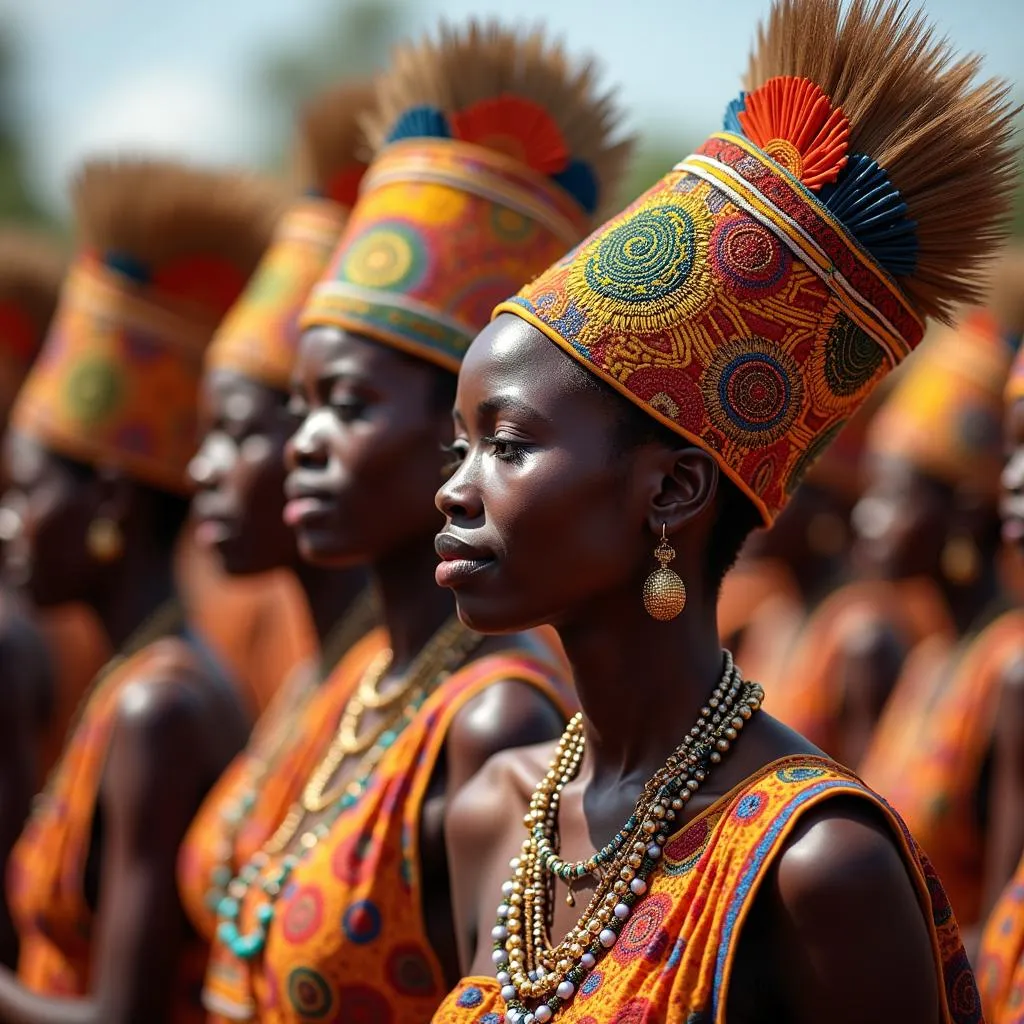African Initiated Churches: A Journey into the Heart of African Spirituality
African Initiated Churches (AICs) are a vibrant and diverse religious movement that has taken root in many parts of Africa. These churches, born from the unique experiences and beliefs of African people, offer a compelling blend of traditional African spiritual practices with elements of Christianity. While often seen as a distinctly African phenomenon, AICs have also spread beyond the continent, influencing religious landscapes and challenging conventional notions of faith. This exploration delves into the fascinating world of African Initiated Churches, examining their origins, beliefs, practices, and impact on African societies.
The Rise of African Initiated Churches
The emergence of AICs is intricately linked to the colonial era and the impact of European Christianity on African societies. During the colonial period, Christianity was introduced as a dominant religion, often replacing traditional African belief systems. This led to a complex interplay between African cultural identity and Western religious doctrines.
Syncretism and Spiritual Fusion
The AIC movement can be seen as a form of religious syncretism, where elements of traditional African spirituality were integrated into Christian practices. This fusion resulted in the creation of new religious expressions that resonated deeply with African communities.
- Indigenous Beliefs and Rituals: AICs often incorporate traditional African rituals, ceremonies, and beliefs into their worship practices. For instance, the use of divination, ancestral veneration, and spirit possession are common in many AICs.
- Spirituality and Healing: AICs frequently emphasize the importance of spiritual healing and deliverance from physical and emotional ailments. They believe in the power of prayer, faith, and spiritual intervention to alleviate suffering.
“The AICs are a testament to the resilience of African spirituality. They demonstrate the ability of Africans to adapt and reinterpret religious teachings to fit their own cultural context.” – Dr. Ngozi Okonjo-Iweala, Economist and Former Nigerian Finance Minister
Key Beliefs and Practices of African Initiated Churches
The beliefs and practices of AICs vary widely depending on the specific denomination, region, and founding leader. However, some common themes emerge across the movement:
1. The Divine and the Ancestors
AICs often believe in a single God, but they also revere and interact with ancestors. Ancestors are considered intermediaries between the living and the divine, offering guidance and protection.
2. Prophetic Ministry and Divine Healing
Prophetic ministry and divine healing are central aspects of many AICs. Prophets play a crucial role in interpreting God’s will, offering guidance, and performing healings.
3. The Power of Prayer and Faith
Prayer and faith are seen as powerful tools for accessing God’s blessings. AICs often emphasize the importance of fervent prayer and unwavering faith in the power of God.
4. Spiritual Warfare and Deliverance
Spiritual warfare is a significant concept in many AICs, with members believing that evil forces are constantly at work in the world. Deliverance rituals are common, aimed at freeing individuals from demonic influence or oppression.
“The AICs offer a unique blend of tradition and innovation, providing a spiritual home for many Africans who find solace and empowerment in their practices.” – Pastor Emmanuel Njuguna, AIC Leader in Kenya
The Impact of African Initiated Churches
The impact of AICs on African societies has been multifaceted. They have provided spiritual solace, community support, and social empowerment for many Africans. However, some criticisms and challenges have also emerged:
1. Social Transformation and Empowerment
AICs have often played a role in social transformation, promoting community development, education, and social justice. They have also been instrumental in empowering women and marginalized groups within society.
2. Religious Pluralism and Interfaith Dialogue
The rise of AICs has contributed to a more diverse and pluralistic religious landscape in Africa. It has also fostered dialogue and understanding between different religious groups.
3. Challenges and Criticisms
Some criticisms of AICs include concerns about their charismatic leadership, potential for abuse of power, and the influence of traditional beliefs on Christian doctrines.
“The AICs are a dynamic force in African religious life. While they offer a powerful sense of belonging and spiritual guidance, it is crucial to engage in critical dialogue about their practices and the implications for society.” – Professor Sarah LaFleur, Anthropologist at the University of California, Berkeley
Conclusion
African Initiated Churches are a testament to the resilience, creativity, and spiritual depth of African communities. They represent a unique blend of tradition and innovation, offering a spiritual home for millions of people across Africa and beyond. While AICs have faced challenges and criticisms, their impact on African societies has been undeniably profound, shaping religious landscapes, fostering social change, and promoting a deeper understanding of African spirituality.
FAQ
Q: What are the main differences between AICs and other Christian denominations?
A: AICs distinguish themselves from traditional Christian denominations through their emphasis on African cultural traditions, prophetic ministry, spiritual healing, and deliverance.
Q: Are AICs only found in Africa?
A: While AICs originated in Africa, they have spread to other parts of the world, particularly in countries with significant African diaspora populations.
Q: What are some examples of well-known African Initiated Churches?
A: Some prominent AICs include the Church of the Lord (Aladura), the Zion Christian Church, and the Cherubim and Seraphim Church.
Q: How can I learn more about African Initiated Churches?
A: You can find further information by researching online resources, reading books and articles on African Christianity, and attending lectures or events hosted by scholars and religious leaders.
Q: Is it possible to visit an African Initiated Church?
A: Yes, many AICs are open to visitors. It is advisable to contact the church in advance to arrange a visit and learn about their specific customs and practices.
Q: What are some key factors that contribute to the ongoing growth of AICs?
A: AICs continue to flourish due to their ability to connect with the spiritual needs of many Africans, offer a sense of community and belonging, and provide spiritual healing and empowerment.
Q: Are there any ethical concerns related to the practices of some AICs?
A: As with any religious movement, it is important to engage in critical analysis of practices and ensure that they align with ethical principles and respect for human dignity.
Q: What are some future trends in the AIC movement?
A: AICs are likely to continue to adapt and evolve in response to changing social and cultural contexts, potentially incorporating new forms of technology and media into their practices.
Q: How can I find resources for further research on African Initiated Churches?
A: You can explore academic journals, online databases, and libraries for books and articles on African Christianity and AICs. You can also connect with scholars and experts in the field through professional networks and online platforms.


